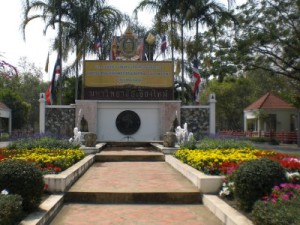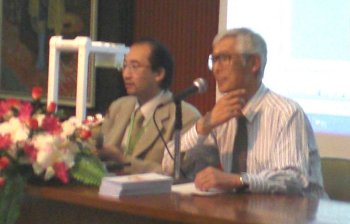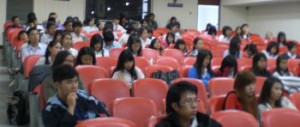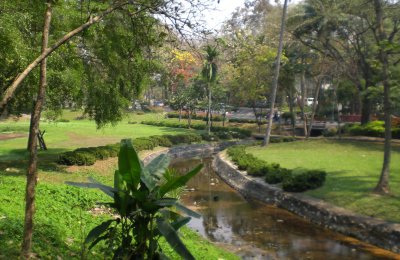Kato Addresses Thai University

Thailand’s Chiang Mai University Invites First-Ever Lecture on North Korean Refugee Issue
On Jan. 23, 2009, Mr. Kato Hiroshi, Executive Director of Life Funds for North Korean Refugees (LFNKR) presented a lecture on the North Korean human rights and refugee issue at Chiang Mai University. Chiang Mai University (CMU), with about 17,000 students, is the largest university in Northern Thailand.
The faculty of political science of CMU held a special one-day seminar on human rights to commemorate the 60th anniversary of the Universal Declaration of Human Rights. Through Mr. Tomoharu Ebihara, the president of an NGO called The Association for the Rescue of North Korean Abductees, Chiangmai (ARNKA), the university invited Mr. Kato to talk about the issue.
About 60 students attended the lecture. Since it was the very first lecture on the North Korean human rights issue ever presented at CMU, Mr. Kato began by exploring how aware the average student in Thailand is of North Korea, including that country’s serious human rights issues. He opened his lecture, therefore, by asking the students several basic questions about North Korea, including “Does anyone know the official full name of North Korea?” He explained the irony of the country’s official name ? Democratic People’s Republic of Korea.
During the Q&A session following the lecture, a student asked “Is there a direct flight between Seoul and Pyongyang?”, and another student asked “Why do those people have to risk such an extremely long-distance journey? Why can’t they just escape straight across the border to South Korea?” Although the existence of “the 38th parallel” the no-man’s land separating North and South Korea, is fairly common knowledge in Japan, it is obviously not yet well known in Thailand, which is situated far from North Korea.
The 2-hour lecture covered the background of why so many North Korean people are motivated to escape from their fatherland into China, where they face hardship because of the Chinese government’s refusal to accept them as refugees.
The lecture explained the cruel fate they face if they are ever arrested in China and repatriated, as well as the strict class system in North Korea. It was also explained that Thailand is currently the first, most common destination of North Korean defectors before they reach resettlement in final destination countries such as South Korea, Japan, the USA, and other countries. This is because Thailand is currently the only Southeast Asian nation where the authorities do not repatriate North Korean defectors.
Thailand has at least one documented victim, a woman from Chiang Mai, who was abducted by the North Korean government. In addition, Thailand could exert economic influence upon North Korea, since it is ranked as the fourth biggest purchaser of exports from North Korea.
For the reasons described, it is clearly important to expand awareness in Thailand of the North Korean refugee issue.








